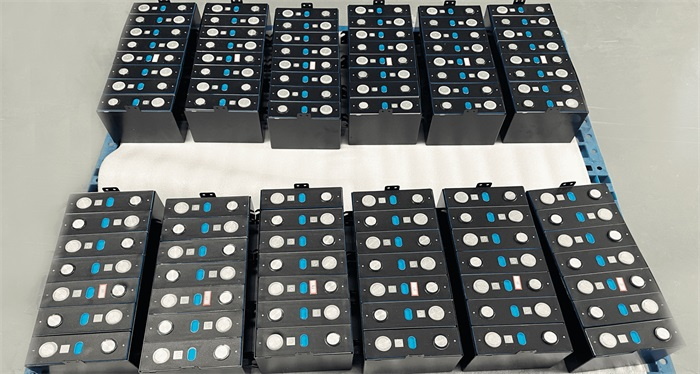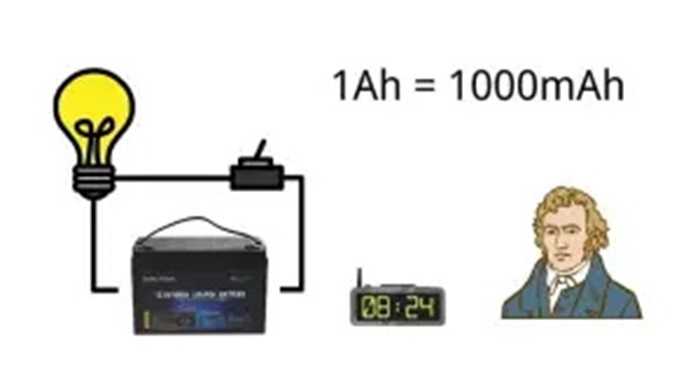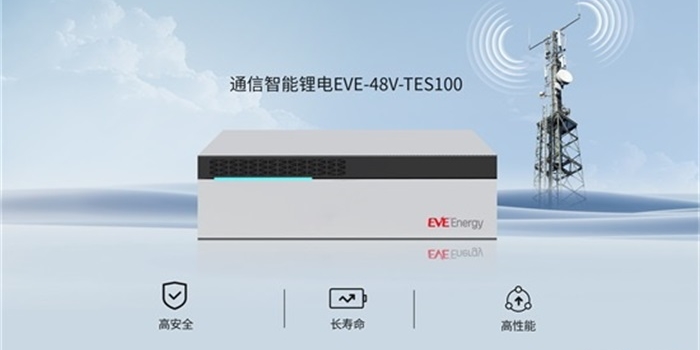How Long Will A 100Ah Battery Last:Take how long will 4 parallel 12v 100ah lithium batteries last for example

If you purchase a 100 amp-hour battery, you may want to know how long it will last. This is one of the most common questions we hear from customers during our consultations. For example, how long can it power your devices during a blackout or while camping? Recently, a customer who purchased four 12V 100Ah lithium batteries from us asked how long will 4 parallel 12v 100ah lithium batteries last. In this article, we will use this customer's question as an example to provide the formula for calculating the maximum run time of the battery and discuss the differences between various 100Ah batteries. By the end of this guide, you will have a clear understanding of how to effectively manage your power needs using energy storage batteries.
Understanding Battery Capacity (Ah)
To determine the runtime of a battery, we first need to understand its capacity. Battery capacity refers to how much charge a battery can store. It is typically measured in ampere-hours (Ah) or milliampere-hours (mAh). The ampere-hour rating of a battery is an indicator of how much energy the battery can store. In the unit "ampere-hour," "ampere" refers to the current (or flow of electrons), and "hour" refers to the time (in hours) that the battery can provide that current. For example, if a lithium battery has a capacity of 100 Ah, it can provide 1 amp of current for 100 hours before being depleted. Alternatively, it could provide 10 amps of current for 10 hours, or 20 amps for 5 hours. The higher the ampere-hour rating of a battery, the longer it can provide energy. Generally, the larger the battery, the higher its ampere-hour rating.
Calculating ampere-hours is simple: just multiply the current (in amperes) by the time (in hours). The relationship is 1 Ah = 1000 mAh.

Therefore, when purchasing a battery, it is important to assess your power requirements and select a capacity (Ah) accordingly.
Factors Affecting Battery Runtime
The runtime of a battery is not only related to its capacity but also influenced by factors such as temperature, depth of discharge, battery condition, and load power.
• Load (Power Consumption)
Just like battery capacity, the load power has a decisive impact on runtime. The higher the power consumption of the load, the faster the battery discharges, leading to a shorter runtime.
For example, using a 24V 100Ah lithium battery to power 100W and 50W lawnmowers. The 50W lawnmower consumes less power, so it runs for a longer time.
Battery Energy:
24V × 100Ah = 2400Wh
50W lawnmower: 2400Wh ÷ 50W = 48 hours
100W lawnmower: 2400Wh ÷ 100W = 24 hours
• Effect of Voltage on Runtime
Voltage and current together determine power. That is, Power (P) = Voltage (V) × Current (I). When the current remains constant, the higher the voltage, the greater the battery’s output power. The greater the output power, the longer the battery can supply energy to the load.
For example, when a 100Ah lithium battery powers a 20W power tool, a 24V 100Ah lithium battery will have a longer runtime than a 12V 100Ah lithium battery.
Electric Tool | 12V 100Ah (1200Wh) Run Time | 24V 100Ah(2400Wh) Run Time |
20W | 60 h | 120 h |
• Device Efficiency
The efficiency of the device affects its energy utilization. The higher the efficiency, the lower the energy loss, which extends the runtime. Older devices that haven’t been maintained for a long time may suffer from excessive energy loss, reducing the supply time. Therefore, manufacturers recommend regular maintenance to ensure efficient operation.
• Discharge Rate
The discharge efficiency of the battery is also a critical factor. A battery with a high discharge rate can allow the device to run smoothly and quickly. Only when the device can fully utilize the energy stored in the battery will the runtime approach the theoretical value. For example, under heavy loads, a 100Ah, high-discharge-rate lithium iron phosphate (LiFePO4) battery will perform better than a 100Ah lead-acid battery.
• Temperature
Extreme temperatures affect the performance of both lead-acid and lithium batteries. In high-temperature environments, the battery ages more quickly. On the other hand, in extremely cold conditions, the discharge efficiency of the battery is reduced. Therefore, when charging or discharging a 100Ah battery, it is important to consider the surrounding temperature. A proper temperature helps improve discharge performance and prolong the battery's lifespan.
Battery Runtime Calculation Formula
If you are selecting a battery or backup power source for a device, it's important to understand its runtime. Below, we will explore a case where a customer has purchased four 12V 100Ah lithium batteries connected in parallel and calculate how long they will run.
In order to understand how long the battery can be used, it is necessary to understand some basic working principles of the battery. For your convenience, we will combine the factors mentioned above that affect the running time of the battery. To calculate for you how long four parallel 12v 100ah lithium batteries can last.
• Battery Capacity (Ah, Amp-Hours)
A 100Ah battery means that it can provide 100 amps of current over one hour when fully charged. Essentially, the higher the current drawn, the shorter the battery’s run time.
• Load Power (W, Watts)
The power of the load determines how much energy the battery needs to supply. For example, with a 12V load and a power demand of 120 watts, the current calculation formula would be:

This means the load requires 10 amps of current.
• Run Time (T)
Based on the above, the battery’s run time can be estimated using the formula:

If the load is 10A, we can calculate:

This means that, with a 10A load, a 12V 100Ah battery would theoretically last 10 hours.
For a system with 4 parallel 12V 100Ah batteries, the battery capacity increases. When connected in parallel, the total capacity is the sum of the individual battery capacities. Therefore, for 4 parallel batteries, the total capacity would be:

Assuming the same 10A load, the system’s run time would be:

So, under these conditions, a system of 4 parallel 12V 100Ah lithium batteries would last approximately 40 hours.
Types of 100Ah Batteries
There are three main types of 100Ah batteries: 100Ah lithium-ion batteries, 100Ah LiFePO4 batteries, and 100Ah lead-acid batteries. Each type has unique characteristics and is used for different applications based on its advantages and disadvantages.
For example, let's consider a 12V 100Ah lithium battery. While the capacity of a 12V 100Ah lithium battery is the same, the performance may vary between different brands and models. One key factor is the Battery Management System (BMS). The BMS protects the battery from issues such as overcharging, over-discharging, and short circuits, thereby extending the battery's lifespan. Some high-end lithium batteries are equipped with smart BMS systems that can monitor the battery’s status in real time and provide feedback through a mobile app, ensuring the battery operates safely and efficiently.
Additionally, the Depth of Discharge (DoD) is another factor that affects the battery's runtime. In general, the optimal depth of discharge for lithium batteries is around 80%, meaning the battery should be stopped when 80% of its charge has been used, to avoid damaging the battery. Some lower-cost lithium batteries may not have an optimized BMS, leading to excessive depth of discharge, which can shorten the battery's lifespan.
Extend your battery’s lifespan
To ensure that your 100Ah lithium battery provides stable power support for a longer period, you need to implement effective power management strategies. Here are some tips and suggestions to help extend your battery’s lifespan:
• Reduce Device Power Consumption
The power consumption of your devices largely determines the runtime of your battery. The lower the power consumption, the longer the battery will last. Therefore, you can opt for more energy-efficient devices. For example, use low-power LED lights instead of traditional bulbs. Additionally, regularly maintaining your devices to keep them in good condition helps avoid excessive energy consumption caused by malfunctions.
When there is a power outage or when using a backup power source, reducing the number of unnecessary devices running simultaneously can help reduce power consumption and extend battery runtime.
• Optimize Battery Charging and Discharging
Poor charging and discharging habits can reduce battery efficiency and even shorten its lifespan. It is recommended to charge the battery in a timely manner when the charge is low. Always use a compatible charger. Once the battery is fully charged, unplug it to prevent overcharging, which can cause the battery to age faster.
• Maintain Proper Battery Temperature
Extreme temperatures can affect both the performance and lifespan of the battery. Therefore, try to keep the surrounding temperature within a suitable range when using the battery. If you are in a very cold area, a low-temperature self-heating function can protect the battery and help it perform at its best.
• Use the Right Inverter
When using the battery to power AC devices, choosing an efficient inverter can reduce energy loss and extend the battery’s runtime.
• Use a Solar System
For outdoor equipment or systems far from the power grid, you can use solar panels to charge the battery, which extends its runtime during the night.
• Parallel Batteries to Increase Capacity
If the runtime of a single battery does not meet your requirements, you can connect multiple batteries in parallel to increase the total capacity. For example, connecting 12V 100Ah batteries can give you 12V 200Ah, 12V 300Ah, or 12V 400Ah. While parallel connections do not increase the circuit voltage, they do expand the capacity. However, you need to ensure the battery specifications are as consistent as possible.
Example Calculation: How Long Will 100Ah Lithium Batteries Last?
Regarding the question of “How long will a 100Ah lithium battery last?”, the answer depends on the load power and battery management conditions. For instance, with 4 12V 100Ah lithium batteries connected in parallel, in ideal conditions, the total energy available is 4800Wh. With a 500W load, it would last approximately 9.6 hours. However, in real-world usage, the runtime may vary due to several factors.
By now, you should have a good understanding of the runtime of a 100Ah battery. We hope this article has helped clarify how to manage your power needs. If you would like to experience the convenience of 100Ah lithium battery technology further, please contact EnergyX. EnergyX will provide practical solutions tailored to your energy requirements.

